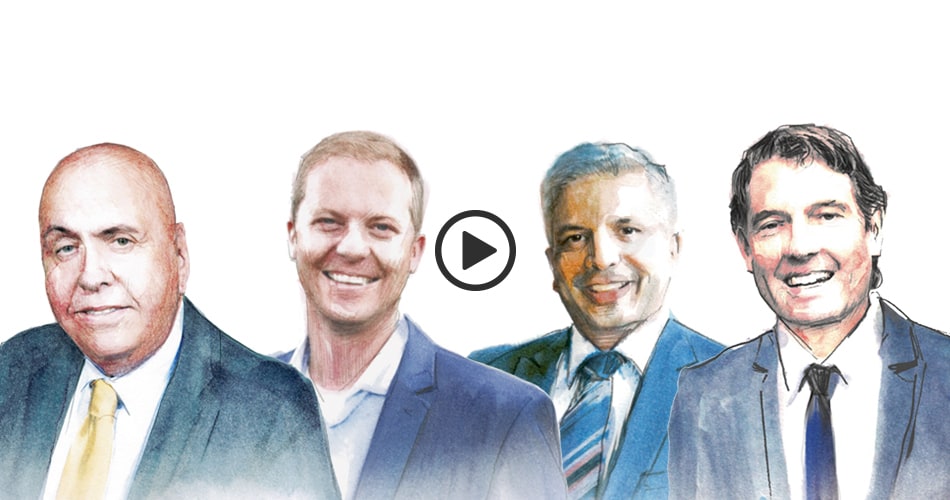On Friday 3 April, the president and regional chairs of the FCSI Worldwide board participated in a ‘virtual’ roundtable to discuss Covid-19 and its effect on their business and the wider industry in their respective regions.
Chaired by Tina Nielsen and Michael Jones of FCSI’s Foodservice Consultant, the roundtable featured William Caruso FFCSI, president of FCSI Worldwide, Eric Norman FCSI, chair of FCSI The Americas, Mario Sequeira, FCSI chair of FCSI Asia Pacific, and Remko van der Graaff FCSI, chair of FCSI Europe, Africa, Middle East. You can watch edited highlights of the video below.
The effects of the crisis
“On the design side, we haven’t seen a drop in business and we haven’t lost any projects due to the Covid-19 crisis,” says Norman. “Some things have slowed down, specifically the education sector – we’re not able to meet with key staff or school boards to keep projects moving forward.”
For Caruso, it’s a similar story. “We haven’t had that much of a slow down. For us, two sectors of work, namely sports & entertainment and healthcare, have really started ramping up, rather than down.
“Healthcare is at the forefront right over the world and new facilities have to be built – the need has exacerbated because of the crisis. In sports, the owners and governing bodies all understand this will pass at some point. When it does there will be a pent-up demand for people to get out of their homes and into the sporting world to get some levity. So, these owners are still pushing to get these projects completed.”
For van der Graaff, where the majority of his business is in care homes for seniors and healthcare, it’s a mixed picture. “We are in healthcare where everything is happening at the moment. But our projects in elderly [care] homes are in lockdown and done for the moment. They will be picked up after Covid-19,” he says.
Focus on the good
The crisis, says Sequeira, is though an opportunity to “show some goodwill” to clients. “We’re offering small complimentary services to help them and they really appreciate it. When things turn around, they’ll hopefully remember ‘these were the guys who were there to support us’,” says Sequeira.
“We are also trying to do good things for our customers – helping them by doing things for free or at a special rate,” says van der Graaff.
And some good practices could even prevail from the crisis, says Sequeira. “Before we had 9-5 jobs. Now the flexibility with clients and staff is creeping in and it’s great thing. It hasn’t broken us. It’s made us stronger and we’ll probably look at embracing it in the future too.”
The future
While the board agree it is impossible to predict how quickly the industry will emerge from the crisis, the initial outlook appears bleak. “Unfortunately, I do not believe it will come back quickly. It’s going to take maybe 2-3 years in some cases to sort all of this out. This is an unprecedented situation,” says Caruso.
“For small, independent restaurants, as many as 30% are not going to be able to turn the lights back on and operate. But, I can see the corporate world and healthcare segments quickly returning,” agreed Norman.
“I think the people who have been in the game a while and know what it is to roll their sleeves up will survive. The 10-15% who, peripherally, don’t have that experience, will fall away,” says Sequeira.
“The main thing we have learned is to change our attitude. In the last few decades we became an ‘individual’ society. Today, we’re getting [re]connected and helping each other. There is more solidarity and creativity,” says van der Graaff.
“We’re all in this together,” agrees Norman.
“I believe in collaboration,” says Sequeira. “Trying to work with each other is the best thing we can do. FCSI is a family and we can help each other. As a friend told me, ‘tough times won’t last, but tough people will’.”
In closing, Caruso, sums up a message of fortitude and resilience. “The FCSI Worldwide board stands ready to assist all members and divisions. We’re one family – we’ll get through this, bigger and stronger. We will prevail.”
Michael Jones

